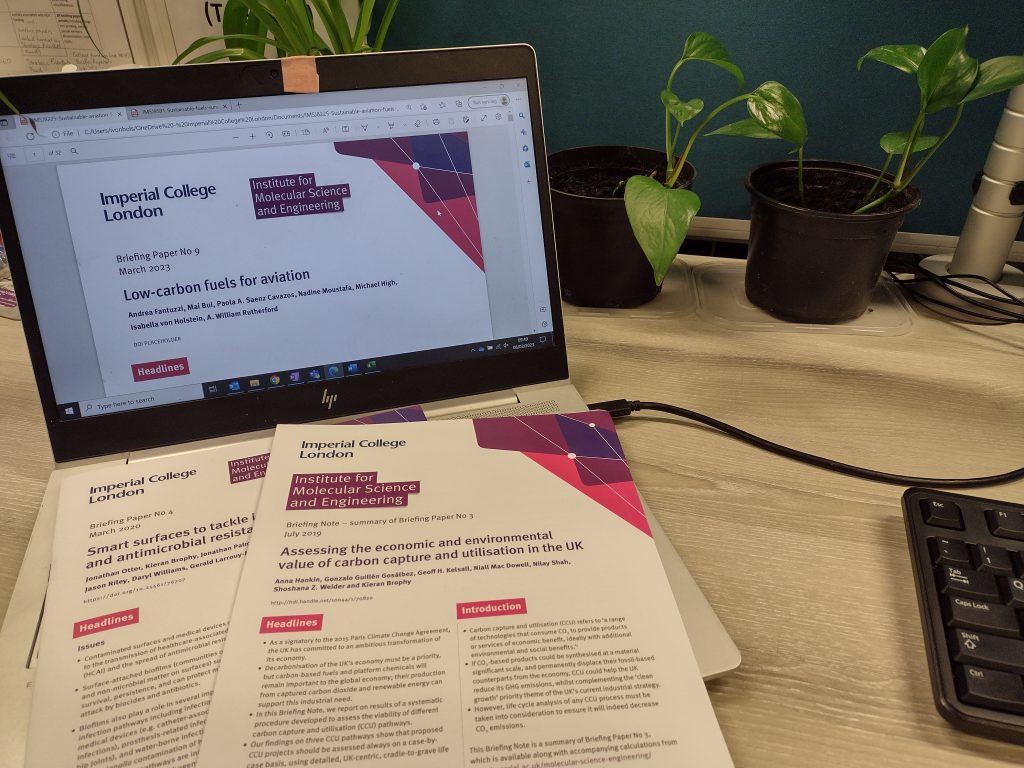And I’m not talking about green food colouring, I’m talking about making formulations more sustainable.
And I’m not talking about green food colouring, I’m talking about making formulations more sustainable.
Or vaccines, or paint, or glue, or perfume, or dishwasher tablets… What do all these products have in common? The answer is they’re all formulations: complex mixtures of substances which all contribute to how the final product works.
On 1 March 2023, IMSE launched its ninth briefing paper, on low carbon fuels for aviation. I have been working with a great team of postdocs and PhD students on this for the last year. It was exciting to hear what a professional audience thought of our work at last.
New podcast alert!
Silicon-based solar panels are four times as efficient as plants at harvesting energy from sunlight. But they’re expensive to produce because the material they’re made of has to be very precisely engineered. What if we could make solar panels out of layered copper oxides (CuO/Cu2O)? These materials are cheap to produce, Earth abundant and fully recyclable.

I’ve been working with a great team of authors for a year to develop a briefing paper about low carbon fuels for aviation. We’re looking in depth at biofuels, power-to-liquid fuels (AKA synthetic fuels) and hydrogen. This is the first briefing paper that I’m taking though the production process in my time at IMSE. There are another 2 in the works, due out later this year.
We’re launching this on 1 March 2023 at 15.00 in South Kensington. Book your tickets here. This event in joint with the newly-founded Brahmal Vasudevan Institute for Sustainable Aviation.
Researchers are human too, though possibly more curious than many. So why do many recognise that interdisciplinary research is valuable, but don’t want to do it? What are the barriers to doing this work?
Over 2022, we’re catching up with some of the people who came to study at IMSE on the Molecular Science and Engineering MRes. They are now going on to a wide variety of exiting jobs in the world. The IMSE MRes has been running since 2017, so there are more than 30 MRes alumni! This week, we speak to Griffin Gui, who studied at IMSE in 2018-2019.
Over the last 2 years or so, IMSE has been working with specialist institutions who focus on energy research. We have now produced two briefing papers about building better batteries.
One of the fun things I have to do in my job is find ways to increase collaborative research between IMSE and commercial companies. This is complicated. Research is risky, it’s expensive, it’s built on constantly generating new ideas, and this only happens with the right mix of the right people. How can we make all of this happen? One of the ways is with big collaborative research projects which are part-funded by industry and partly by public investment. In this post, I look at how this works.